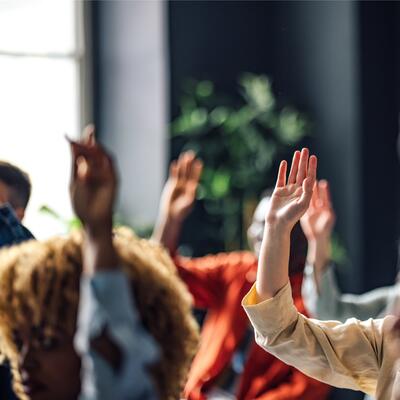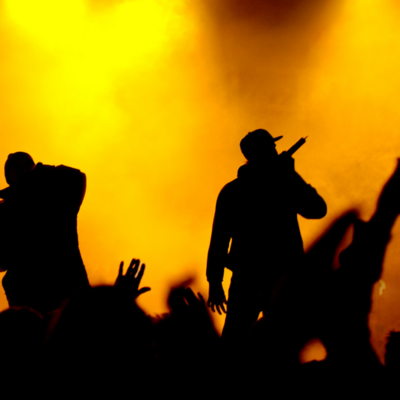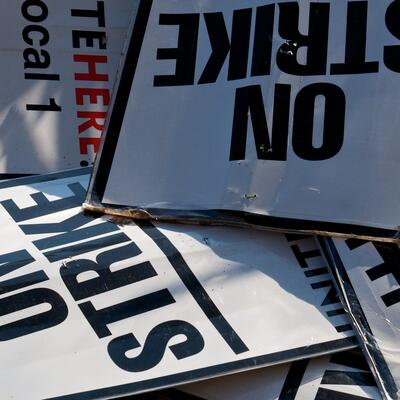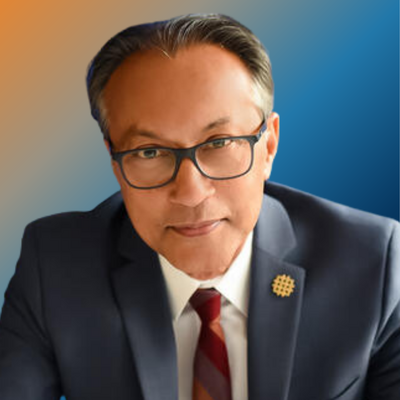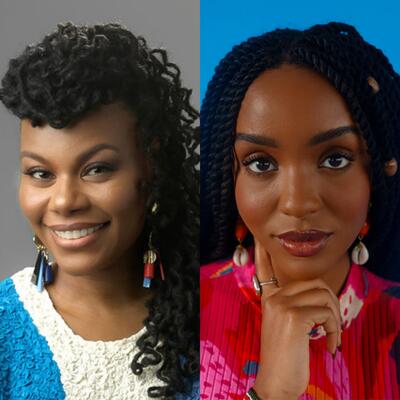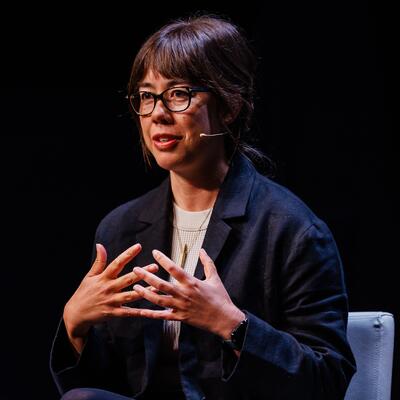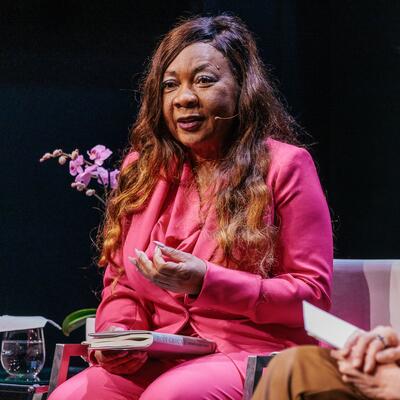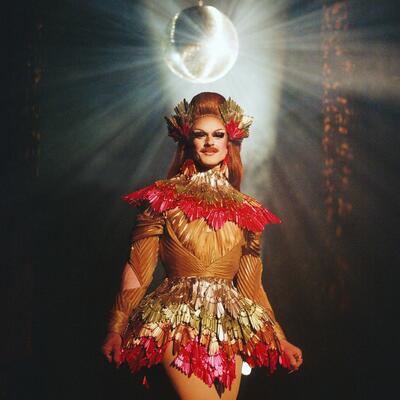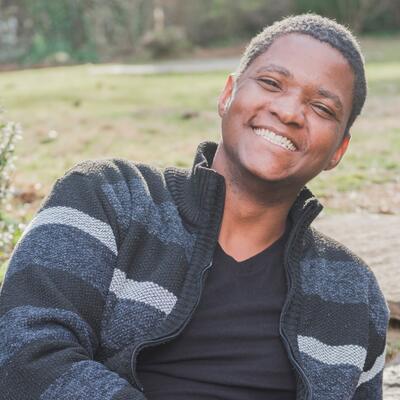
Local Climate Heroes with Project Drawdown
Guests
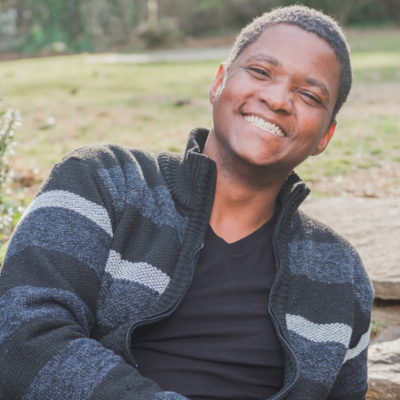
Matt Scott

Grace Anderson
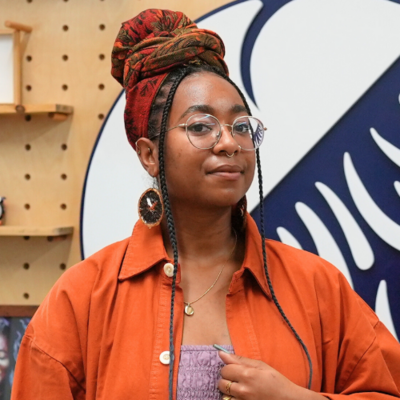
Ashia Ajani
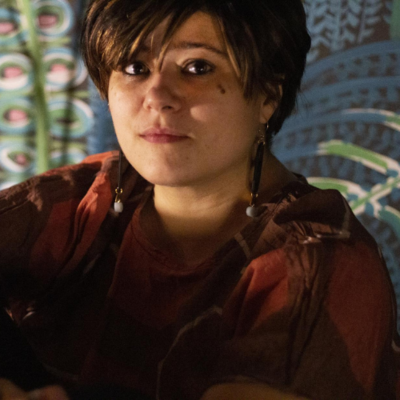
Alana Casanova-Burgess
Summary
Project Drawdown is a leading resource for climate solutions. The organization’s central thesis is that no single idea is going to solve the problem, but rather, that a comprehensive approach just might do the trick. The project’s best-selling book “Drawdown” itemizes exactly how many gigatons of emissions will be prevented by nearly a hundred distinct actions – things like reducing food waste, improving global health and education, and reforestation. Drawdown's ideas have been widely read and implemented by policymakers, influencers and business leaders worldwide.
Recently, the organization has begun connecting their message to what can be done on a local level. Matt Scott is Project Drawdown's director of storytelling and engagement. As part of that work, Scott has been traveling around the country interviewing local climate heroes, and he's created a video series called “Drawdown’s Neighborhood.”
In Atlanta, Pittsburgh, New Orleans, the San Francisco Bay Area and more, Scott lifts up underrepresented voices of those engaging in climate issues directly in their communities. And that diversity of voices – of women, queer people, Black people, Indigenous people, and people of color – is itself the point.
“Prior to our storytelling work, we spoke about the science and the solutions. We spoke about the statistics and the data. And that was really inspiring and uplifting to the point where nearly half a million copies of the Drawdown book have been sold and circulated worldwide,” says Scott. “But there was still the question of, okay, but like, what can I do? Where do I fit in?”
Scott emphasizes the importance of stories that help people see other individuals who are heroes in a sense – and who look like them. As someone who identifies as young, Black and queer, Scott says, “Without stories that represented me, people like me, my interests, I wouldn't be here in the climate movement.”
Ashia Ajani, a climate justice educator with Mycelium Youth Network, says that following the “racial reckoning” of 2020, more women of color were hired into predominantly white organizations. At first, they would hear “Oh, we want to support you. We love your ideas. We want you to be here and make change. We will put everything behind you to make change,” Ajani says. “And then you start identifying really serious problems, like foundational issues. And they're like ‘Ooh, gotta wrap it up. We can't be going that deep.’ And then you just don't feel like you have a place in that org or at that company.”
Grace Anderson, founder of The Lupine Collaborative, says “We don't need to go into these institutions. We don't need to be your DEI managers. We just need time and space to create. The solutions that we already know because we're embedded in our communities.” And so she created her own organization so that people like her could flourish in the environmental movement.
Anderson envisions a future where people of all identities are leading abundantly resourced environmental organizations. “If resources were distributed in the ways that they should be, we'd all have enough," Anderson says. “There's a lot of joy in that future.”
Episode Highlights
1:15 - Matt Scott on his identity
8:15 - Matt Scott on what makes a hero
11:35 - Matt Scott on the use of villains when storytelling
17:25 - Matt Scott on the importance of interviewing
20:21 - Ashia Ajani on activist and community organizer Fannie Lou Hamer
21:37 - Grace Anderson on inspiration
23:17 - Ashia Ajani on rage as a superpower
32:14 - Ashia Ajani on what hope looks like
35:00 - Matt Scott on what making space means him
37:53 - Grace Anderson on professional spaces
43:10 - Grace Anderson on how the outdoors is not a safe place for everyone
49:28 - Ashia Ajani on youth
Resources From This Episode (4)
Full Transcript
Alana Casanova-Burgess: This is Climate One. I'm Alana Casanova-Burgess, sitting in for Ariana Brocious and Greg Dalton. Project Drawdown is a leading resource for climate solutions. Their central thesis is that no one idea is going to solve the problem, but their comprehensive approach just might do the trick. In their best-selling book “Drawdown” they itemize exactly how many gigatons of emissions will be prevented by various actions – things like reducing food waste, improving global health and education, and reforestation. Drawdown's ideas have been widely read and implemented by policymakers, influencers, and business leaders worldwide.
Recently, the organization has begun promoting their message on a smaller scale, local level, with video storytelling. And that's where our first guest comes in. Matt Scott is Project Drawdown's Director of Storytelling and Engagement. As part of that work, Matt has been traveling around the country, interviewing local climate heroes, and he's created a video series called Drawdowns Neighborhood. We'll hear Matt in conversation with two of those local heroes later in the show. But first, Matt Scott is here with me now. Hi, Matt.
Matt Scott: Hi. Thank you for having me, Alana.
Alana Casanova-Burgess: Thanks for being here. I know I already said your title, but I like the way you start every interview you do with the question, who are you? So I'm going to ask you that very same question. Matt, who are you?
Matt Scott: It's an overwhelming and big question.
Alana Casanova-Burgess: Also, the way I asked you, it sounded very, uh, it's, it sounded very aggressive. Who are you?
Matt Scott: I know. I almost feel like I've found personally as an interviewer that when I ask the question, who are you, that it does feel very aggressive because it's a huge question to start out with, but who am I? Um, I'm a son, I'm an uncle, I'm a brother, I'm a young black queer person, I am, as you mentioned, the director of storytelling and engagement at Project Drawdown, and someone who has been really thankful to have a career that's centered on humanity and on the stories of people.
Alana Casanova-Burgess: And why that question? Why, why that simple, but not so simple, who are you?
Matt Scott: I, I love that question of who you are because so often we're not asked to show up as we are so often in any professional setting. We're just thought of as our job, right? What do you do? Or? Like, what do you do?
Exactly. I live in Washington, DC, where that's like the number one question that people ask. And it's, it's not a very, uh, fulfilling question to be asked, uh, unless you answer that with anything that's not your job title, of course, but, you know, so often. We are just viewed as our profession. Other times, especially when we look at the folks that I tend to focus on in our work, primarily folks from underrepresented communities, primarily Black folks, Indigenous folks, folks from communities of color, we are often looked at as just our trauma, or just as that label of being black, being indigenous, being a person of color, um, whatever that, that identifier might be. And I like to give people the opportunity to fully identify themselves, like identify how you feel comfortable showing up in the moment. And what's so cool about that is that oftentimes people will share, you know, if they're a parent, they'll talk about that. If they are, you know, a sibling, a family member, they'll talk about their families. They'll talk about their passions and their hobbies. And to me, that's so critical because Sure, people could relate to your profession, but what they could relate to even more is all the different qualities and identifiers that they have in their lives to like, Oh, I'm also a mom. Oh, I'm also someone who loves singing or playing Dungeons and Dragons or whatever it might sound like. I always think it's interesting that so often the identifiers that I have people share that we include in the edits of these interviews are things that don't seem relevant at all. But the purpose that it serves is helping people relate and find a connection with the interviewee, the featured climate hero on the other end.
Alana Casanova-Burgess: Right. So Let's get into Drawdown's Neighborhood. It's a series of short documentaries featuring the stories of climate heroes, city by city. Can you talk us through the connection between the mission of Project Drawdown and this storytelling element that you lead?
Matt Scott: Sure. So, prior to our storytelling work, what we did is we spoke about the science and the solutions. We spoke about the statistics and the data. And that was really inspiring and uplifting to the point where nearly half a million copies of the Drawdown book have been sold and circulated worldwide. And it's New York Times bestseller, which is phenomenal. But there was still the question of, okay, but like, what can I do? Where can I come in? Where do I fit in? And from my perspective, the stories help people see other individuals who are heroes in a sense, but they're really people who are part of the broader systemic change that we need. And so while Project Drawdown so often speaks about the broader climate solutions and, and the bigger picture, what stories do is they make it really tangible and down to earth and they showcase people from a diverse range of backgrounds who are contributing to solutions to help others see, Oh, wow, like, I'm just like that person. If that person could do it, why can't I do it? For me, I mean, personally, I've seen the necessity of stories because without stories that represented me, people like me, my interests, I wouldn't be here in the climate movement, and that's something I found talking with countless people in this movement, that stories are what give us permission and what give us belonging to show up and to do whatever work it is that we need to do to stop climate change.
Alana Casanova-Burgess: Can you give me an example of a drawdown lever that is supported by a story, like, how do those two interact?
Matt Scott: Yeah, so one example of a climate solution that many people think of, that's one of nearly 100 climate solutions that we need in the world, is trees. And at Project Drawdown, we've identified tree plantations on degraded land as one of those levers, or one of those climate solutions. And, you know, traditionally, you could look at the gigatons of emission, and the carbon that's sequestered by those trees. Of course, that requires learning what gigatons are and what sequestering is. And what
Alana Casanova-Burgess: sequestering means.
Matt Scott: All of it. It's, it's a lot. But a thing that I love is that there are so many stories that bring that to life in a way that's more human and relatable and also in service of someone finding their role when it comes to climate. Because we know that when we know information or when we know about gigatons of carbon and environmental impacts of something that it doesn't necessarily lead to the action that we need. And so I, for instance, love the story that we told from Drawdown's neighborhood in Pittsburgh of Clara Kitongo, who is someone who grew up in Uganda, grew up as someone who's afraid of forests, believe it or not, in her childhood and moved to Pittsburgh, Pennsylvania, and she was ultimately inspired to work with trees in her role as the tree equity manager at Tree Pittsburgh, because of the representation that she saw from Wangari Maathai, who is the first African woman to win a Nobel Prize. And I point to that because not only does it. show Clara's pathway to contributing to a climate solution, but also that sometimes the ways that we plug in or make an impact are things that we're hesitant about, things that we don't understand, things that we have fears around. And Clara's story is one that really humanizes for me the pathway that one person could have to being part of the systemic change that we need when it comes to something like trees or when it comes to climate solutions overall. And on top of that, I love that Clara shares her story as a black woman in Pittsburgh. someone who's an artist, as a singer, as someone who uses their talents and their gifts to be part of solutions.
Alana Casanova-Burgess: So in describing the folks that you talk to as heroes, how do you define a hero? Like what makes a hero?
Matt Scott: Well, I would say first and foremost, that I personally find that heroism is way more common than we realize. So often when we think of heroes, we think of someone who's wearing a cape and tights and, uh, flying and with these supernatural powers. But the reality is in today's world where we need everyone to show up, this is, you know, with the climate crisis, a hall in all hands on deck effort. For me, a hero is someone who takes time out of their lives to contribute to solutions that might not feel extraordinary to people. And I think part of that's that it is accessible to so many folks, but also we live in a world where the crisis is so urgent that anyone who's taking action not only to better the climate, better the environment for themselves, but for their communities is taking a heroic action in many ways.
Alana Casanova-Burgess: Hero is one character in a story. Do you think about that in terms of, of storytelling? Like who are the characters? There's like hero, is there villain? Bystander, victim?
Matt Scott: Yeah, so often when it comes to characters in stories and in particular how folks that I highlight folks from underrepresented communities, you know, we're often viewed as victims in the climate narrative or in the climate crisis so often people want to talk about or not talk about the trouble that we face because we know that the community is most vulnerable to the impacts of the climate crisis are these underrepresented communities, Black communities, indigenous communities, communities of color. But something that I want to bring to life is that beyond just being survivors, which is a noble label, we're also people who could contribute to solutions and not just be part of them, we can lead those solutions and be heroes.
Alana Casanova-Burgess: Because who knows better than the people. experiencing these challenges.
Matt Scott: Well, exactly. And I think that that's, that's one piece of it. Like, who knows better than, you know, the people who are facing the crisis day to day, who feel closest to the crisis day to day. But I'll also point out that so often, there's been this idea of the hero's journey, and there's this, It's been this idea of the sole lone hero that's highlighted that's doing it alone. And the thing that I love is that I personally, I grew up as a fan of the Power Rangers, of X Men, of Captain Planet, and none of them did it alone. It was all these diverse ensembles of characters, fantastical characters, that were making positive change. And so my belief is that, you know, like being a hero, you, you aren't someone who does it alone. You're someone who does it collaboratively. You're someone who recognizes your individual power, but then also looks around and says, okay, what other heroes and what other powers do I need to work with in order to make change? The idea of the sole hero of the one organization, the one individual who's going to stop the climate crisis just isn't realistic. We need the activists, we need the academics, we need the scientists, we need everybody in order to make change, not doing it alone, but doing their part to contribute to the change that our world needs.
Alana Casanova-Burgess: Do you think about villains in storytelling?
Matt Scott: The villains get a lot of airtime and they're important to recognize. But I think it's time that we center the heroes because the more that we hear about villains without hearing about the heroes, the more that that fuels our disempowerment, the more that that contributes to a narrative that we can't be part of solutions. At Project Drawdown, our executive director, John Foley, will give this analogy of going to the doctor and they give you a diagnosis. And the way that our current climate communication functions is as if you get a diagnosis and the doctor sends you on your way and doesn't tell you what to do.
Alana Casanova-Burgess: Mmhmm. So I think we can both feel when we've told a story well, we know the production value, we know when we've nailed all the beats and the pacing and we've got everybody interested, but how do we measure when we've told the story successfully, especially for for the purposes that you're talking about?
Matt Scott: I would say that success for me is really when someone watches their video back and feels truly represented and says, wow, that's me. And that's me, um, shining as the hero that I am. And I didn't see myself as that much of a hero until I just watched this back. And I realized, whoa, okay. I am someone who can make a difference in my community and in this world and inspire others to do the same.
Alana Casanova-Burgess: Right. Can you talk about how we even imagine the local scale? Because, you know, climate change, we've we've come to think of it as this hyper object, right? This like thing that is being bigger than our imaginations. We can't even cram it into our brains because it's so massive. And we need massive solutions, right? We need, like, we desperately need everybody to be on the same page. So how do you, how do you talk about local solutions without them feeling, like, not enough?
Matt Scott: It's all interconnected. It's all interconnected. So all of the individual actions, all of the organizations doing great work contribute to this bigger systemic change that we need. So maybe I can't picture what all of the solar panels in the world look like and what we need. But what I can picture is, you know, going to the roof of my apartment building and seeing that in the last couple of years, we've installed solar panels and I could, you know, see the cost savings that come with that. And I think one of the powers that comes with local action is that it is something we could wrap our heads around. It's something that we feel it's something experiential for us and tangible for us. And it, it. It paves the way for conversations about the bigger picture, about the full systems in ways that would be a lot harder to wrap our heads around if we start from this top down approach.
Alana Casanova-Burgess: So what do you say when young people ask, what can I do? Like where should I start?
Matt Scott: I tell young people to first and foremost, like consider what they care about most. And I think of an organization that I've done work with, um, LearnServe International, which focuses on this question for people. What pisses you off? What is it that makes you upset? What is that you care about? And then walking you through the process of doing something about it, creating a venture that addresses that problem. To me, I found that that's incredibly effective, one, to remind young people that they have agency, that they can do something, that they can be the change that their communities need, but also that, you know, it, like, the ways that you've been told you could plug in, whether it's posting on social media, whether it's voting, whether it's protesting, like are, are important, but they're only part of the bigger picture of what you can do. I love the climate action Venn diagrams that have been popularized by Ayanna Elizabeth Johnson. And they point to really thinking about what brings you joy, what you're good at, and what the work is that needs to be done. And at the heart of that, your climate action. And so I would encourage young people, you know, to one to realize that they have more power than any young person's ever told that they have, but also to recognize that if you focus on what brings you joy, if you focus on what you're good at, and you focus on that problem that what pisses you off, that you could figure out how to be part of the solution when it comes to climate.
Alana Casanova-Burgess: See, what pisses you off is such a great question, because it's great for all people of any age, right? Like, there's nothing that anybody likes more than talking about their gripes.
Matt Scott: Yeah. And, and then I think what's so powerful about that is to remind people that they could actually do something about those issues. Like, yes, if you are actually upset about the fact that you cannot bike home from where you are because there aren't protected bike lanes and it's incredibly unsafe, you could actually
Alana Casanova-Burgess: Yeah, you probably imagined a solution to this.
Matt Scott: Exactly. You could, you could, you could advocate for that work. You could design that work in terms of being an infrastructure planner in some way. Like you could collaborate with others to brainstorm ideas for the change that you want to be. So I, I really appreciate one people having like the therapeutic benefit of just venting about what it is that makes them so upset, but also realizing let's not stop there. Let's go further and consider what we can do and how we could like serve ourselves by addressing the problem that we care about, but also in the process serving our communities and serve the greater good.
Alana Casanova-Burgess: So you yourself have many talents and many options for implementing solutions. You've worked with NASA, Nike, the Obama White House, and now you're doing this interview based video project for Project Drawdown. So why do you find interviewing to be so central to your personal mission?
Matt Scott: Interviewing, more than policy and more than many things, preserves people's agency and humanity. We need to allow people to fully show up to represent. their full perspectives to represent their full powers.
Alana Casanova-Burgess: That’s Matt Scott with Project Drawdown. We’ll continue our conversation in a minute. And we’ll also hear from some of the heroes in his series, speaking at a special live event at the Commonwealth Club in San Francisco. That’s all after the break, when Climate One continues.
By the way, if you missed a previous episode or want to hear more conversations about climate, we've got loads of them. You can find playlists on our website climate one. org or subscribe to our podcast wherever you get your pods.
Alana Casanova-Burgess: This is Climate One. I'm Alana Casanova-Burgess, here with Project Drawdown's Matt Scott. So, you recently hosted a live event with Climate One, and you brought two of the climate heroes from your video series, Drawdown’s Neighborhood, to the stage in San Francisco. We’re gonna play some of that conversation in a moment, but before we do, I want you to tell me a bit about who we're going to hear from. There's Ashia Ajani, who leads Mycelium Youth Network, an education non profit that prepares young people for a climate challenged future, and Grace Anderson, the founder of the Lupine Collaborative, which helps Black and queer women develop as leaders in the environmental movement. What drew you to each of them?
Matt Scott: Number one was just thinking back to the conversations that we had for Drawdown's Neighborhood sitting down. We will sit down and have these hour and a half long conversations, sometimes more, just going and going and going. And with Ashia, I really loved how they brought in so much history, so much some of the connections that I know, but that I don't often think about around indigenous land around slavery around all these pieces of history that do relate to where we are now. And with Grace, there's just so much of culture and identity. And it's not often that there are spaces where you have three black, queer people represented having conversations on a stage where people are actually listening when it comes to climate change and solutions. And I'm, I'm so thankful that we could have that conversation for so many people to, to listen to and to hear from.
Alana Casanova-Burgess: All right, so let's get into it and hear it. This was recorded in front of a live audience. And you started by asking both Grace and Ashia about what inspires them to keep up their work in the climate movement. And Ashia talked about the civil rights activist and community organizer Fannie Lou Hamer.
Ashia Ajani: Fannie Lou Hamer was the founder of Freedom Farm Cooperative, which started off as a pig bank. She was also a voting rights activist, a feminist, um, and I don't know, you know, I think that there are some terms that we use now that might not have been as applicable to her, I don't know if she would self identify as, but I would also argue a disability rights, activist. she had what was, colloquially called during the time a Mississippi appendectomy, which was a non consensual hysterectomy. And this occurred a lot during that time. And this is one of the things that really led her to action, seeing the overlaps and the intersections of these various issues. Because for me, you know, environmental justice and climate justice and, and climate change, they're not separate issues. They're interwoven. They're interrelated with issues of reproductive justice, with disability justice, with voting rights. and to see her run a black owned, a woman led cooperative for 10 years during the seventies, like that's some real star power. And every time I feel like I want to like give up or that I don't want to like continue this work anymore, I'm like, Listen, Miss Fannie got it, like, yeah, you, you got it too.
Grace Anderson: I let a lot of things move me. I'm quick to cry. Um, but I think right now, like I think about the lineage I come from and how many black folks who were stolen from Africa needed to survive for me to be right here and that inspires me. So many people had to like fight and resist for me to be sitting here in this moment. So that inspires me. Connected I've been really inspired by the work of Christina Sharp who wrote “In the wake on blackness and being.” And her whole theory is that like the Atlantic slave trade happened and the wake left behind the boat is like all the aftershocks of slavery, and that's the work that we need to do in this moment. Like, we're constantly feeling the, like, aftershocks and impacts of slavery and, like, working in the wake, and bringing people out of the wake. So that's inspiring me right now. Um, also, yeah, I, I don't know if you've ever read “The Book of Awe" by Dacher Keltner. Um, He, he pushes us to like find awe and delight in like every moment. Um, so that's like laughter in the grocery store with a little kid or like watching my plants unfurl. Um, I get a lot of joy from like, um, ferns unfurling, like the fiddle heads. and all of that like comes together, like the theoretical blackness work and also just like being in community and then also just the natural world kind of come together to blow my mind.
Matt Scott: I think it's powerful Grace, and so often. We talk about the challenges. people center the victimhood narratives, especially when it comes to black folks, queer folks, other underrepresented communities. But I want to ask you about superpowers. What's a superpower that people often overlook for you that kind of comes up? Let's get into it.
Ashia Ajani: I think for me especially, two things, the biggest one is rage. I think that a lot of folks shy away from rage or everybody loves that like, you know, James Baldwin quote that's like, you know, like, love is gonna bring us together, love was never a popular movement, um, And they divorced that from the fact that like James Baldwin, this country enraged him so much that he he left, you know, he he couldn't bear it anymore, and there's a piece of that rage that is very much like grief stricken, but it's also rooted in love because I love my community so much because I love my little cousin Payton and I don't want to watch her struggle to breathe. I want her to have clean air. I want her to have clean water. Because I'm mad when they closed down a bunch of predominantly black schools and keep shuffling kids away because I'm mad that people are separating families at the border. A lot of this rage is what drives me. And so my rage is very honorific and it's very, um, catalyzing and I can alchemize it into action. So I think that that's something that I hope I can do continue to have, because it's a really impactful driving force in my life. And the other one is a thirst for knowledge. I'm a very curious person. I love to know how things work. I love to know stories behind things. I think everything has a story. Even when I like look at a plant, I don't just see like a plant. I see a whole story about like, how did you get here? Like, why are you here? Where are you from? You know, things like that. that's something that I also try to impart on my students just being curious, like constantly being curious and constantly asking questions.
Matt Scott: One thing I want to actually follow up on with that rage in particular, it's something that so many of us could relate to in the climate space. If, if the climate crisis doesn't make you angry or upset or emotional in some way, I'd encourage you to really sit with it and connect with those emotions a bit more because I don't know what else it's supposed to make us feel at this point. And we're human, but I, I want to ask you, how do you kind of, um, almost, how do you balance those, those things? Because you mentioned rage as a superpower, but I mean, we could see on the other side of the coin that that could also be something that, you know, it's heavy and, um, it's hard to carry.
Ashia Ajani: Yeah. And it is. I don't pretend that it's not. But it's something that feels very ancestral. I mean, I think my rage was also passed down to me as were, were like my big brown eyes, as were like my height, you know, like so I think of these things as inherited. Um, these things that drive us forward. But it can get really heavy when you are kind of keeping it all inside. I think finding an outlet for it is the most productive means of alchemizing, catalyzing that rage. I'm a big fan of like somatic release. I love to dance. I think dance is so important. And there have been studies that show like, like dancing, like makes you feel better. Like it releases, I don't know, I'm not a scientist, but it releases some like, like really cool chemicals in your brain. and it helps you process trauma and things like that. That's one of the reasons why I write because it, like, it has to go somewhere, you know, like it has to process, it has to, um, release. I don't keep it here. Right. You know I put it out into the world, um, not in a destructive way, but in a way that's like, um, sometimes, I mean, fire is a cleansing element as well, you know, like we do controlled burns for a reason.
Matt Scott: That's so powerful though. I'm so curious what's coming up for you, Grace.
Grace Anderson: Yeah, I hold a lot of sorrow, I think is one of my superpowers. And then that turns into subversion or imagination, then subversion. And the sorrow comes from like, you can't live in this world. Well, some people can, I can't live in this world and not feel like heavy grief of like, being connected to the folks in Gaza, to being connected to the folks in Sudan, to being like walking down the street in the Bay Area and see how many folks are unhoused. Like I can't like experience this world and just not not feel that. And so I, I allow myself to feel like a lot of sorrow, um, and also just like my family of origin, like growing up, like really poor and like still being like so deeply connected to that story and the impacts of that. And so I try to hold that sorrow. But also I'm like, okay, they, this is all made up by like. This is someone's imagination we're living in, right? Like, I really love that meme that says, like, we could have created anything and a white man created credit scores. Because I'm like, why? Like, why are we living like this? I really spend a lot of time with my imagination and being like, this can't be it. Like, this can't be, we can't be in this country with all this money and people are living like this. I spend a lot of time in my imagination and my brain and my dreams and like actually like moving towards the world I want to live in and just not Not accepting what this is, um, and then that leads me to subversion, which I think is my most joyful state, is like, oh, I don't believe in any of this, I'm going to divest from all of it as much as possible, which led me to creating this organization. It's like, oh, the climate movement and these organizations, like John Muir did not have black folks in mind when he created the Sierra Club, or neither did any of his contemporaries and so the idea of us going into these institutions and actually like thriving in them is nonsensical and so it's like, okay, what else can we create? So I spend a lot of time in like the subversive joyful space of like, no, I just like, no, not going to do it.
Matt Scott: Oh my gosh, I, just knowing you and, and even just experiencing like the ways that you create space for imagination and for visioning and all of that, I think is something that I, I hope everyone can have access to, that we all have a right to imagine. We all have a right to make space for a world that's beyond what we immediately see on social media in our immediate environments. And we'll get to what that future looks like, but I'm curious from your lens, like what, what is kind of the status quo?
Grace Anderson: Yeah, I think it's, it's a lot of, like, when we look at who's being funded and who's being funded, like, quite abundantly, and without scrutiny, it's often, like, white men, um, and white women, and it's people who don't come from, like, front line communities, but, like, go study them, um, and the old, I, like, I saw this, like, uh, new meat company like a fake meat company shut down. But they shut down with like 20 million dollars at the bank and it's like oh my god these black organizations are asking for five thousand dollars and like having to go through 10 pages of reporting for that. And so I think it's just like a replication of what we know of american capitalism, but like now in climate, which is terrifying. But like we know it and um, I hope we can do more to resist it.
Matt Scott: I'm just so curious what's coming up for you, Ashia, with all this.
Ashia Ajani: Yeah, um, I really appreciate that you named that discrepancy. I think as well meaning a lot of these orgs, um, want to be, oftentimes a lot of the same dynamics are repeated where black folks and other people of color are carrying the brunt of the labor, and then other people are kind of getting funded to be in offices, and, uh, deputize or whatever or and and it, it just repeats the same, um, kind of extractive relationship to land, that I think we're trying to avoid and, and, you know, and I think one of the biggest things that we have to confront if we're thinking of the climate movement as like a collective movement, is there's a lot of preoccupation with peace, and law, and legality, and I think what that does is oftentimes prolongs the problem, um, it refuses any sort of engagement with some serious, very serious questions about what are you willing to give up? What do you need to give up? Even if you aren't willing to give it up, what do you need to give up? Um, there is like this whole, you know, hashtag, listen to black women, that didn't happen., If you look at a lot of the artists, the thinkers, the cultural workers that you love so much, a lot of them died in poverty. A lot of them, uh, died sick. and so I think that there's a really big reckoning that needs to happen if any sort of meaningful and any sort of long lasting and sustainable change is to be had within the climate movement.
Matt Scott:one thing that in the face of all of that, that gives me hope is meeting or seeing or connecting with people who are pushing the change that we need to see. Like, if only a Grace Anderson and Ashia Ajani were in these spaces, like, these spaces could be radically different, or at least they'd be thinking differently and acting differently. Um, you know, that's a whole other conversation, too, about who we really need in power. But, in the face of all the issues that you talked about, I'm just curious, like it, not even to assume that there's anything that gives you hope, but like, is there, you know, how do you find hope? And, and what does hope look like for you?
Ashia Ajani: um, hope is a discipline. And I tell myself that every morning. Um, I Really think that you said it. I mean it's it's little things like listening to my little cousin laugh, like, hearing her, like, bicker with, like, her younger cousin is so funny to me, because it's like, oh wow, I just, I went through that too, like, I see myself in you. people who are really, like, doing the work, um, There's a quote by Ron Finley, who's a guerrilla gardener. He's like, you know, just like plant, plant some stuff, you know, just like go ahead and plant some stuff. Folks who are out in Bayview Hunters Point organizing their own like cooperative grocery stores. Folks who are like, like the pothole guys who are going and filling up potholes because the city won't do it. People who are planting trees, people who are seed bombing, who are doing soil remediation. I think that that's really what gives me hope is seeing more folks recognize their own power and their own capacity to enact change. And that's not to say that those in power don't have any responsibility to us. I think that they've shirked that responsibility and, and it's, it's the people who really fill in the gaps. Because for them, this is their home. This, it ain't no other, you know, I, I have I haven't felt a love, um, for a city as much as I have being in Oakland. That's not to say that other people don't love their cities, but people from, like, like, like, people from the town got, like, a lot of pride, and, and I completely understand why. they're problem solvers, they're, like, you know, task makers, they're imaginers, you know, like they're doing the subversion and, and that's what gives me a lot of hope.
Alana Casanova-Burgess: Today we’re featuring Project Drawdown’s Matt Scott, and his conversation with two Bay Area climate leaders: Ashia Ajani and Grace Anderson. Coming up, for groups often kept on the sidelines of the climate movement, institutional power isn’t necessarily the end goal.
Grace Anderson: We don't need to go into these institutions. We don't need to be your DEI managers. We just need time and space to create. The solutions that we already know because we're embedded in our communities.
Alana Casanova-Burgess: That’s up next, when Climate One continues.
By the way, if you missed a previous episode, or want to hear more conversations about climate... we've got loads of them. You can find playlists on our website, climate one dot org. Or, subscribe to our podcast wherever you get your pods.
Help us get people talking more about climate by sharing this episode with a friend. And we’d love to know what you think of the show. Please give us a rating or review. You can do it right now on your device – and it really helps people find the show. Thanks!
This is Climate One. I'm Alana Casanova-Burgess here with Project Drawdown's Matt Scott. One theme that runs through your conversation with Grace Anderson and Ashia Ajani is this idea of making or creating space. What does space mean to you?
Matt Scott: For me, what making space looks like, if you just want to picture the idea of, you know, a person who is in a spacious field and somewhere where they're able to spread out versus the opposite when you're crammed in and you, you know, feel like it's hard to breathe. I've often been the, whether it was the only young person or the only black person or the only openly queer person in the space. And you could feel a tightness in your chest, and you could feel as if you aren't able to show up fully, as if you have to be guarded, as if you might not be safe, right? And so to me, creating space for someone means creating an opportunity for them to show up fully as they are. They don't feel like they need to dress a certain way. They don't need to feel like they need to act a certain way or move through the space in a certain way. They could just be themselves, which sounds like this novel idea. but the thing is like, The places where we're able to make the biggest impact are the ones where we're able to show up fully are the ones where we're able to, you know, spread our wings rather than keep ourselves cramped in. And so for me, how I know that I'm making that space for folks is when I see their shoulders drop, when I hear them breathing and laughing and seeing them, uh, you know, comfortable. And when I hear from them that they're comfortable and that they felt like they could show up and share aspects of themselves that they haven't been able to share before.
Alana Casanova-Burgess: When I hear you talking about that cramped feeling, I also think about resources though, like time and money. Um, Is that also space? Part of the freedom to expand, to let yourself go?
Matt Scott: Yeah, that's so spot on, you know, if people don't have the funding and they need to be concerned about that in order to do the work they do, there's not a lot of space for them to move and to give more time and attention to their creativity, to the care that they have for the community, to their relationship building. And so for me, having space and creating space for people is only about that sense of comfort, but also giving them space where they feel that they could abundantly show up, where they're not limited by the financial resources, but where they're not limited by any of the constraints around them in order to, you know, imagine and enact the world that they want to build or where they can, like, actually achieve their dreams and achieve the visions that they've, they've set out for themselves.
Alana Casanova-Burgess: Yeah, so free from that claustrophobia. Let's get back to your conversation with Ashia Ajani, and Grace Anderson. First, here's Grace.
Grace Anderson: I'm queer, but I like present as straight. Um, I can like talk to white people about certain things. I'm like, I like bikes, you like bikes. And that gets me into rooms like for real, like I, and I'm, I've been able, like, I've been very, like, the beginning of my career was really tokenized and like given these like professional skills that do get me into these rooms. And so thinking about the people who aren't here, who are like accented, undocumented, trans, queer, fat, like, I feel like there's just like this, repetition of who's like let into these rooms and I'm very mindful of the ways that I've gotten into rooms and my ability to have specific conversations and like quick to code switch and to ask for what I want because I have been really reinforced and so when I think about people who aren't here and like the work that we need to do It's like whatever Black person you see in the world. They deserve like the same respect and dignity that I’ve been given. Um, so I think about that a lot.
Matt Scott: I've been in so many spaces throughout my career. I was the global community lead and organizer of the world's largest global hackathon for NASA, and I was working with the Obama White House, working with, like, Nike, working with, uh, all these leading organizations, but so many times, one, if I was let into the room, I could be viewed as just that young black kid who's doesn't know anything, who needs a mentor, who needs training, who needs advice, who needs to learn despite all of the bona fides I'd gained. We're here on this stage, right? But then like, let's, let's use our power to bring other folks in, right? I see you nodding, Ashia.
Ashia Ajani: I resonate with a lot of what was said. There's this, uh, really great article that was talking about, black women specifically, um, but office pet to office problem, and how black women get pushed out of these spaces. And a lot of this is kind of rapidly happening after 2020. There's the whole racial reckoning, you know, kind of thing. and so a bunch of black women, other women of color, they get hired into these spaces. Oh, we want to support you. We love your ideas. Um, we want you to be here and make change. We will put everything behind you to make change. And then you start identifying like really serious problems, like foundational issues. And they're like ooh, gotta wrap it up. Um, We don't, we can't, we can't be going that deep. And then you just don't feel like you have a place. in that org, or at that company. You, basically slowly get very like death by a thousand cuts kind of slowly get pushed out. and it's exhausting and it is, I would argue it is debilitating in some ways it causes a lot of health problems, both mental and physical and emotional. and so that's something that I am very aware of in the climate space. Being able to feel free in the community, is such a blessing and such a pleasure.
Alana Casanova-Burgess: Matt, as I hear this, it strikes me that another area where women and people of color often feel unwelcome or unsafe is in the outdoors. I think this may come as a surprise to so many of my white male friends who think of nature as being inherently healing. Why wouldn't everyone want to throw on some hiking boots and go smell some pine needles? Um, but it's not.
Matt Scott: Yeah. I often joke about the fact that, you know, some of us have horrible outdoor allergies. Some of us like just want to be inside at times. And while I'm joking about that, there is a reality there that, uh, the outdoors in nature and no one experience is accessible to everybody. I think what's so important. And one of the things I really love about the conversation with Ashia and Grace is that we could shine a light on the reality is that, you know, nature isn't for everybody. Nature isn't something that everyone feels comfortable in. Like I think of my own experiences going out in nature, whether it's where I live or where I grew up and navigating the trails as a young black man. I don't know how I will be seen or perceived or if I’ll run into someone who's going to think that I'm doing something illegal or that I'm a criminal or whatever it might be like that's stuff that I need to think about. sometimes in nature. I don't always think about it, but something I need to think about.That's also something that, you know, someone who is not of my identities or my experiences, you know, might not have to think about. So it's important that we stop and recognize that our experiences are not everyone's experiences. That's the beauty of storytelling and listening to people is that it gives us space to learn from others and rather than question it or push back, like take it in as data that can inform how we could do better at engaging people and getting them to show up for this climate movement.
Alana Casanova-Burgess: I was so interested to learn that Grace Anderson started her career as a park ranger. I thought that's really cool. She went on to work with an organization called PGM - ONE, which stands for People of the Global Majority in the Outdoors, Nature, and Environment. But you talked with her about the ways that being in nature is really uncomfortable and even traumatic to some people. So let's go to that part of the conversation now.
Grace Anderson: I don't think spending out time outside is inherently inspiring. A lot of trauma, a lot of people have trauma in the outdoors. Um, Yeah, a lot of different, I mean, I could name like most groups of marginalized people. I don't encourage folks to go out unless there's like a deep desire and want to. And then I think like supporting people and finding their own relationship with um, nature and the outdoors, like I mean, I find a lot of delight in it, um, but I'm not very prescriptive and like, you should do this because it's traumatizing, it's scary to be alone outside, like black folks aren't welcome outside, like it's just, there's a lot there, so I'm not prescriptive in saying like, nature is inherently inspiring, but I like to do it and spend outside.
Ashia Ajani: Very similar to Grace. Um, I feel an inherent sense of calm when I personally am in a forest. I also know there are certain, uh, family members that I just can't take out there because of their own histories and their own legacies, um, with trauma. so I think that having a trauma informed relationship to nature or if you're going to do things in a group, you know, like, have that sort of, like, mindset. Um, I will also say as an educator, I do think that it's very important for young people to get outside. So I try to encourage them, but I try to make it as easy, you know, and like non, like, you know, we're not going to be out here like, you know, like starting fires and like fishing with sticks and stuff and, you know, we're not going to be doing stuff. We can, we can do that, but we're going to ease into it first. I also am someone who loves a good city, I do some walking tours with Mycelium, we do eco mapping, and so we look at nature that's already inherently around us, and so it might not be, you know, like a big, beautiful beach, it might not be a big, beautiful forest, but it might be a big, beautiful tree, or we see a new kind of flower that we'd never seen in the neighborhood before, just something that like inspires you. I also do think that a lot of the students that I work with, they come from, uh, redline neighborhoods that have been purposefully, um, divorced from nature. trees have been cut down in many Oakland neighborhoods, many black neighborhoods, um, across the United States in order to promote surveillance. so a lot of these things are overlapping and interconnected. So I don't think of nature as a place to go, but a place that we're inevitably bound up in and have a lot of influence on, and should think about how we can better create that correlation both in the city and, you know, elsewhere.
Matt Scott: This is so fascinating because I have a very similar answer to that question and and in short, I would just say like, meet people where they are. Rather than kind of assuming and putting something out there that, you know, they might think is a blanket solution, but that actually doesn't engage everyone.And one thing I also want to recognize is that both of you do such a beautiful job creating space or making space or providing space, whatever terminology you'd want to use, um, Ashia, like in so much of the work you do, like one thing that comes to mind for me is I think of youth, but I'm sure there are so many other communities you're making space for. Grace, you've talked about the different communities you're making space for, um, when it comes to the Lupine Collaborative. But just so curious how do you go about making space for folks.
Grace Anderson: Um, yeah, I started the Lupine Collaborative last year. In a lot of ways it's like a formalization or like Institutionalizing my own career trajectory. I started as a park ranger, then I did, I lived in Wyoming and did climbing and backpacking for a while. Then I moved to the Bay, worked at the Sierra Club. It ripped my soul out. I co led a organization, um, for black, uh, Indigenous and people of color called PGM ONE, which is a racial affinity space for folks of color in the environmental and climate world. And I did that for four years. And when I left, I approached a foundation again, like had the dignity support and backing to approach a foundation. Say if you fund me for 18 months, I'll create something. Um, and they did, and this was 2020, so they did it. Um,
Matt Scott: Which I will also say this is one of the things that when you first mentioned this to me about yourself, I was like, what? Wait, what? Could we pause? Like you, you approached a foundation and you told them what you want to do and the resources you need to do it, and they actually provided you with that. Like, that is such a novel concept to me because I'm not used to that happening for, I mean, unfortunately for like people like us, right?
Grace Anderson: Yeah, faking it till I make it. A lot of that energy. Um, but yeah, I've been really supported, you know, They gave me a chunk of money to live off because I was like, I don't have a family safety net and I don't have like family backing, but I need time. If you give me time and space, I can create something. And so I created the Lupine Collaborative, um, which is for black women, black trans folks, black non binary folks in the climate and environmental space. And essentially it's like, we just need time and resources and that's it. Like we don't need to go into these institutions. We don't need to be your DEI managers. We just need time and space to create the solutions that we already know because we're embedded in our communities. And lupine plants, if you see them, they're like stocky purple plants, and sometimes they're yellow and they're nitrogen rich, and they put oxygen back in the soil for other things to survive. That's what black people do. If you look at, like, St. Helena, when it erupted, the whole hillside was cleared, and then lupines were the first plant to come back. They're pioneer species. They make the oxygen rich and other things and come back. So I'm like, Oh, if we resource very directly and abundantly, the people who have had to learn to survive and build, like when in a world that's not built for them, then that's when the solutions will come because we continue to like pump money into these organizations. Like, Oh my gosh, you've been around for a hundred years. What have you done? Um, and so I'm very dedicated to like that very specific population of people because we are so pushed out. But like anytime we are resourced, like our resources never stay with us. They Um, so that's how I'm making space. I'm being very deliberate and very intentional and not scraping by. I'm going to raise a lot of money for this and do it really well.
Matt Scott: How much money?
Grace Anderson: I would love to raise, oh my gosh, 25 million. Um, is my starting goal. I'd love to be endowed. I'm going to put that into the universe.
Matt Scott: All right. I like the specifics of that too. I'm curious from your perspective Ashia, how that resonates, but more, um, just back to that initial question of, you know, How do you make that space, whether it's for youth, um, or others that you center in your work?
Ashia Ajani: Yeah, We don't think of them as so, but youth, are an oppressed class themselves. They do not have rights in many cases, um, they are beholden oftentimes to the desires the legal frameworks of the adults that are in their life. and I remember being a kid and being such a why kid. Why, why, why? And people just being like, that's just the way it is. And then me also being in my emo bag being like, but it shouldn't be though. And this is making me very sad, but I have nowhere to put all of this because I am a child, because I am a young person, because I am a teen. and so I think through my work with Mycelium Youth Network, It's really important to recognize that youth very much know what's going on. Whether you want to believe that they do or that they don't, you know, they very much know what's going on. And we have a very big, moral despair issue, in our classrooms that is not just climate related.It's overlapped with so many other things that they are seeing a lot of the youth that I work with, they have family that is unhoused. They see people who are unhoused constantly. They deal with gun violence. They deal, um, with interpersonal violence. They deal with a lot of these things and they see a lot of these things going on. And so what's important for me as an educator is to recognize that. And also show them the long lineages of survival, of resilience, and of joy that they descend from and that they are moving towards. We always say, oh yeah, children are the future. You guys are going to be creating the future. A lot of the youth that I talk to, they're very worried about the future. They're like, what future? And, and that breaks my heart, you know, but, but I also don't want to lead them astray. and so I think just being very honest with them, but also being very honest about what is within our capacity what we can do as a collective, as like a whole humanity. There is so much power in our refusal that we don't even realize it. I don't think that boycotting is the answer to everything. but there are boycott lists that are going around. There are ways that we can distribute resources to each other that are not just financial. There are ways that we can say, No, I am not going to be part of this. Shipyard workers, they walked off when they were supposed to deliver weaponry to Israel. folks are refusing to buy, um, new technology. folks are recognizing, you know, how much power we have, especially as American citizens, in our buying dollar, And I, I think that, you know, no is a complete sentence. No, I am not going to do that. No, I am not going to participate in that. No, I am not going to be neutral. No, I'm not going to, um, let that happen. and, and, you know, and, and see where that takes you.
Matt Scott: I just want to ask, give a round of applause for that. Yes.
I love that. And I love, as you talk about the future, the picture that you're painting for that. I actually just, Grace, want to know from you, like what does that future look like?
Grace Anderson: I think, uh, it'll be like when like black folks and black queer people and black trans folks are like leading organizations that are like abundantly resourced. It's just kind of like, Oh, of course. Um, so my future is like very much. Oh, of course we're doing that. It's like Lupine and like other organizations that exist that like put us into the front of these spaces. Yeah, I envision a world where we're just like resource and it's not even like a thought. It's like just like normal. And then if I think about what it feels like in my body, it feels like really spacious. It feels really abundant. It feels really joyful. because I'm like, Oh, if resources were distributed in the ways that they should be, like we'd all have enough. Like if people just took what they needed and not more and didn't extract in the ways they do, we'd be good. So there's a lot of like joy in that future.
Matt Scott: I love that. Thank you so much everyone for being here and for just the love and the support. and thank you to you too, Grace, Ashia. Thank you so much, everyone.
Alana Casanova-Burgess: Matt Scott is Director of Storytelling & Engagement at Project Drawdown. We heard him in conversation with Grace Anderson, founder of The Lupine Collaborative – and Ashia Ajani a writer, poet, and climate justice educator with the Mycelium Youth Network.
And that’s our show. I’m ACB. Thanks for listening. Talking about climate can be hard, and exciting and interesting -- AND it’s critical to address the transitions we need to make in all parts of society. Please help us get people talking more about climate by giving us a rating or review. You can do it right now on your device. Or consider joining us on Patreon and supporting the show that way.
Greg Dalton: Brad Marshland is our senior producer; Our managing director is Jenny Park. Ariana Brocious is co-host, editor and producer. Austin Colón is producer and editor. Megan Biscieglia is producer and production manager. Wency Shaida is our development manager, Ben Testani is our communications manager. Jenny Lawton is consulting producer. Our theme music was composed by George Young. Gloria Duffy and Philip Yun are co-CEOs of The Commonwealth Club World Affairs, the nonprofit and nonpartisan forum where our program originates. I’m Greg Dalton.
